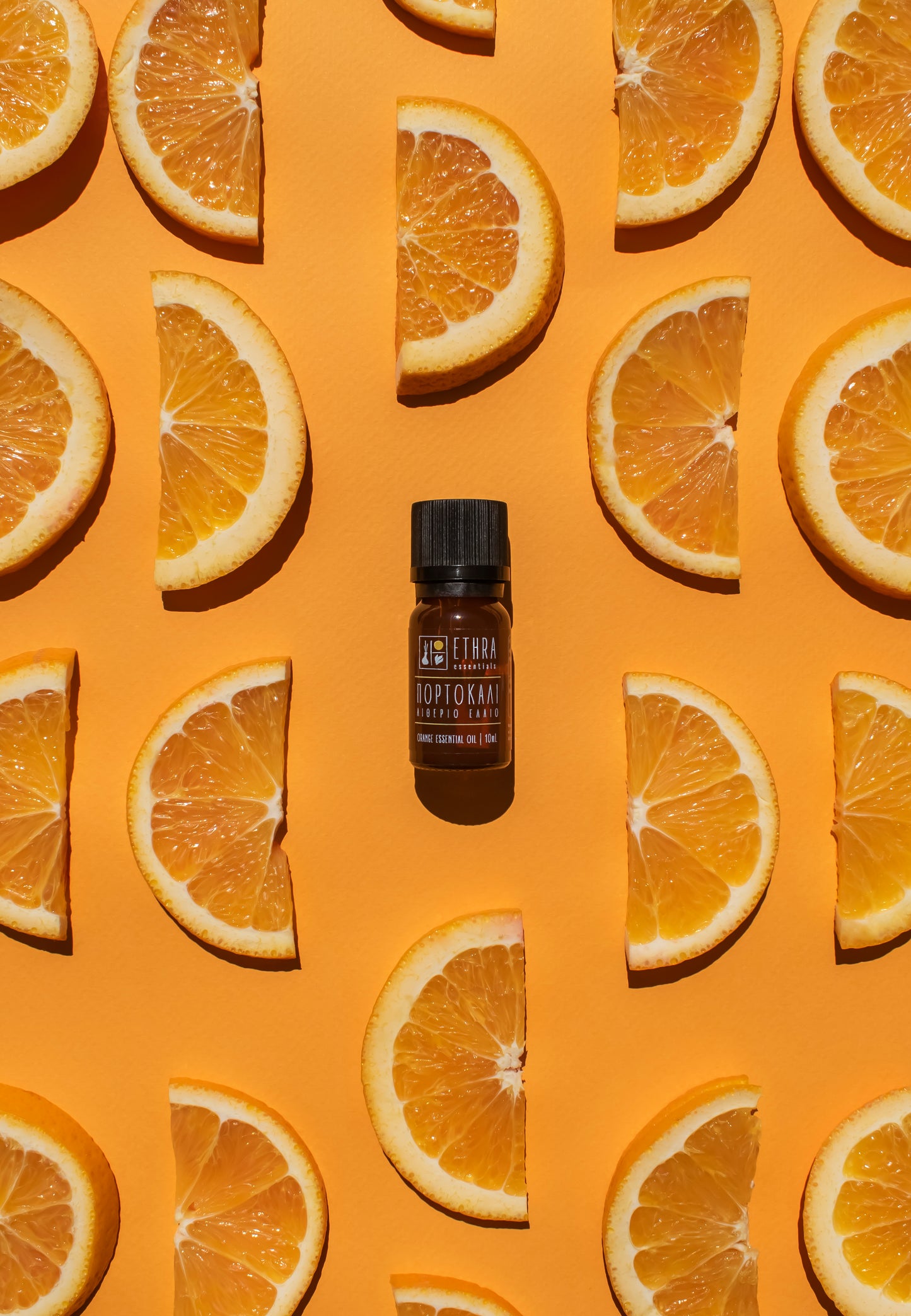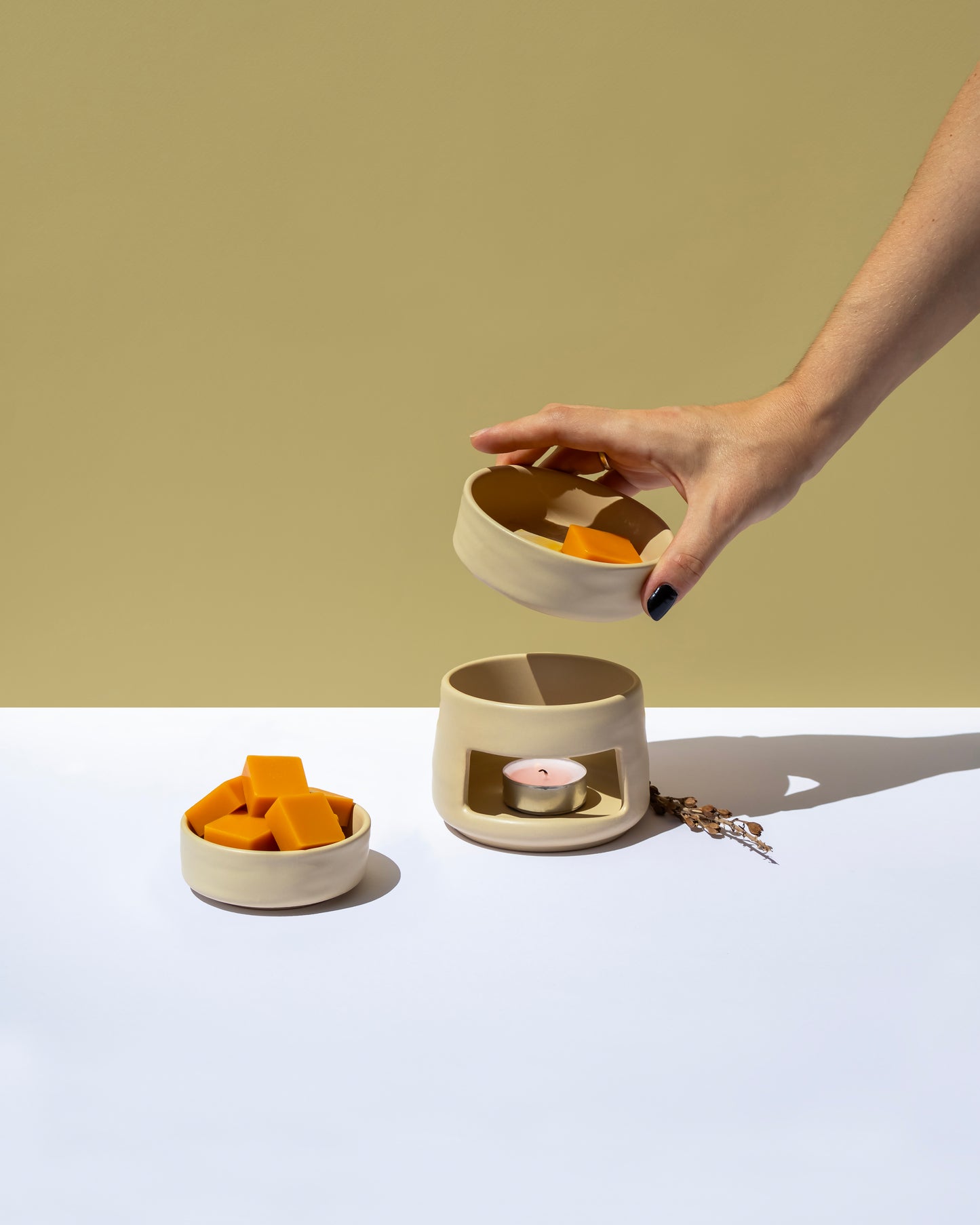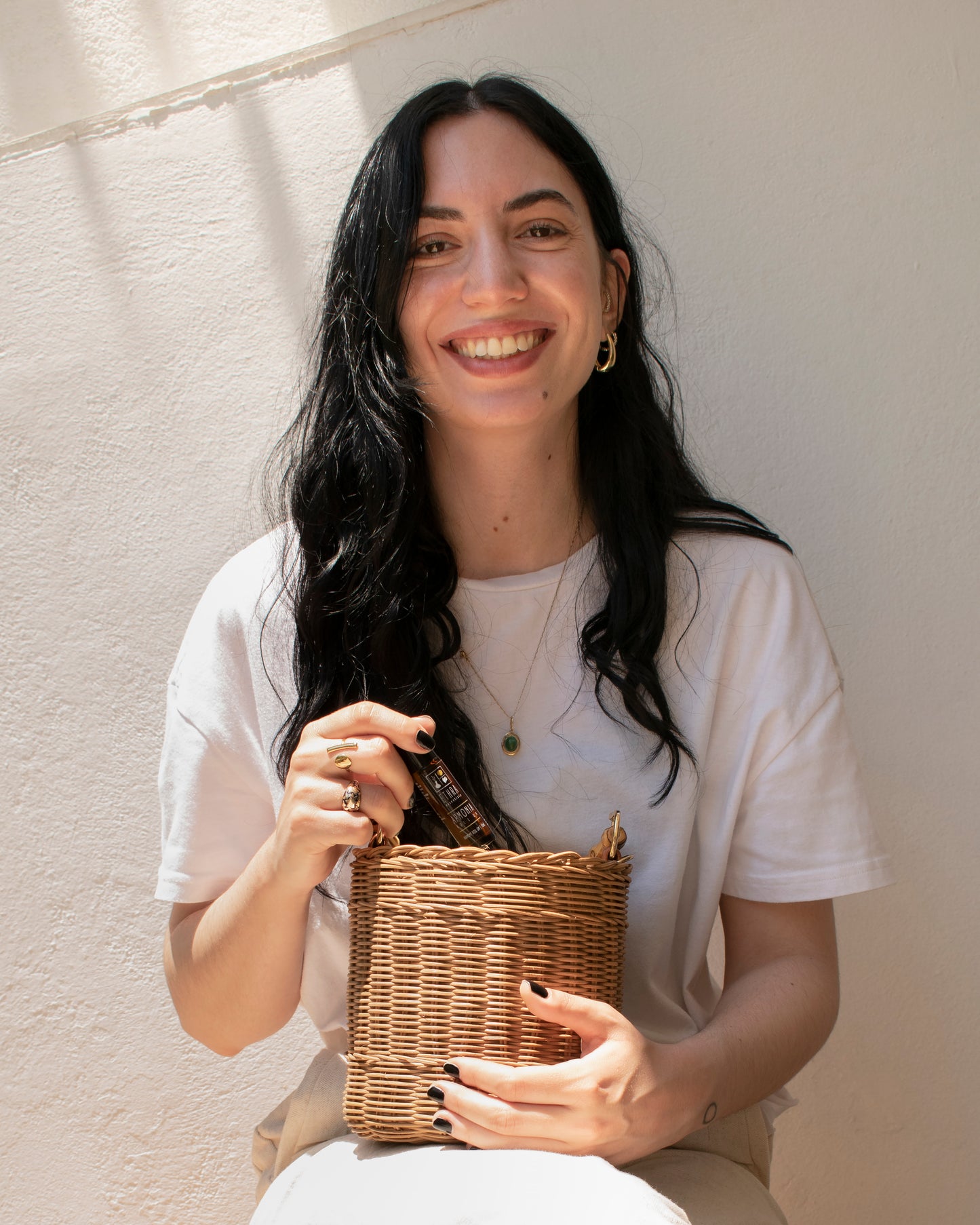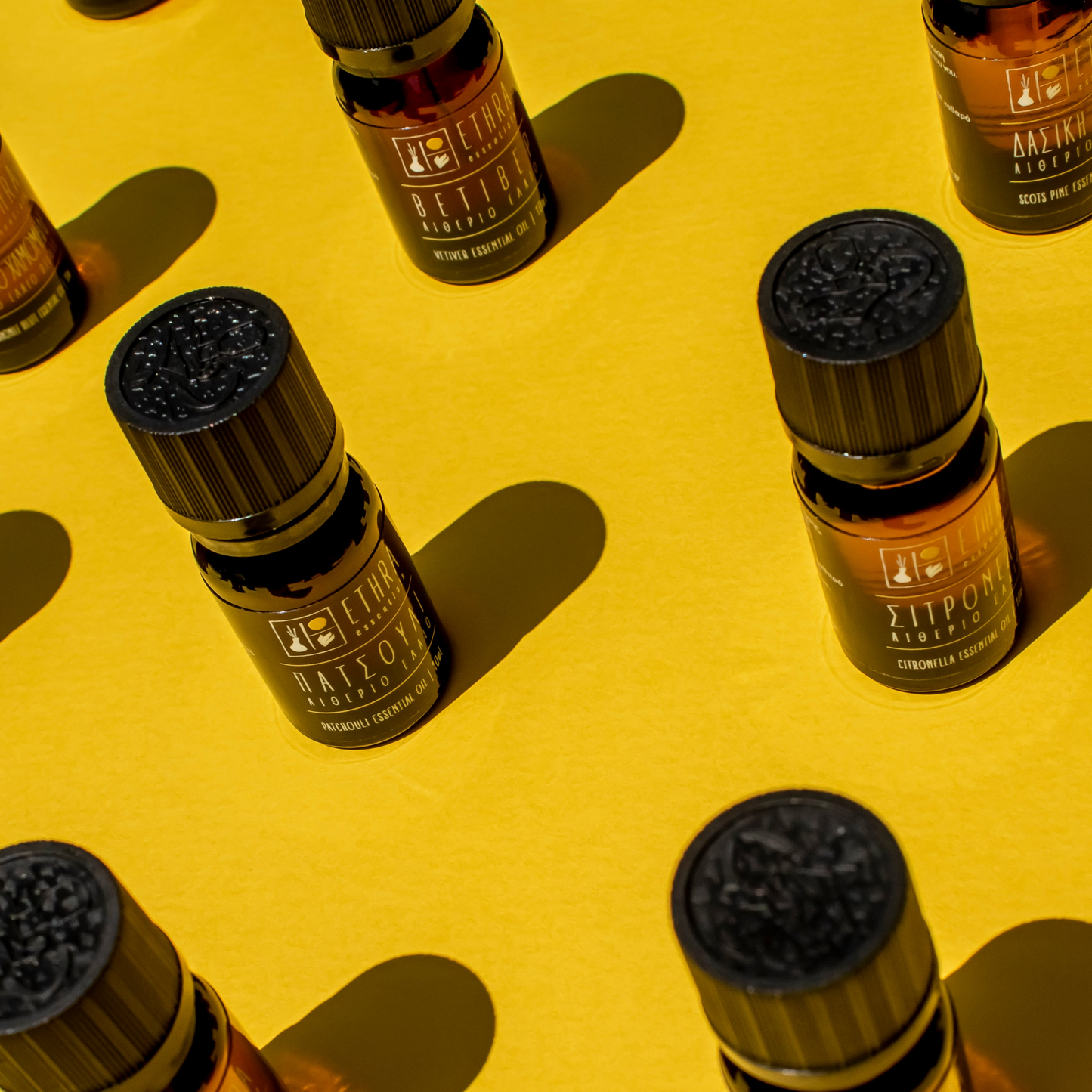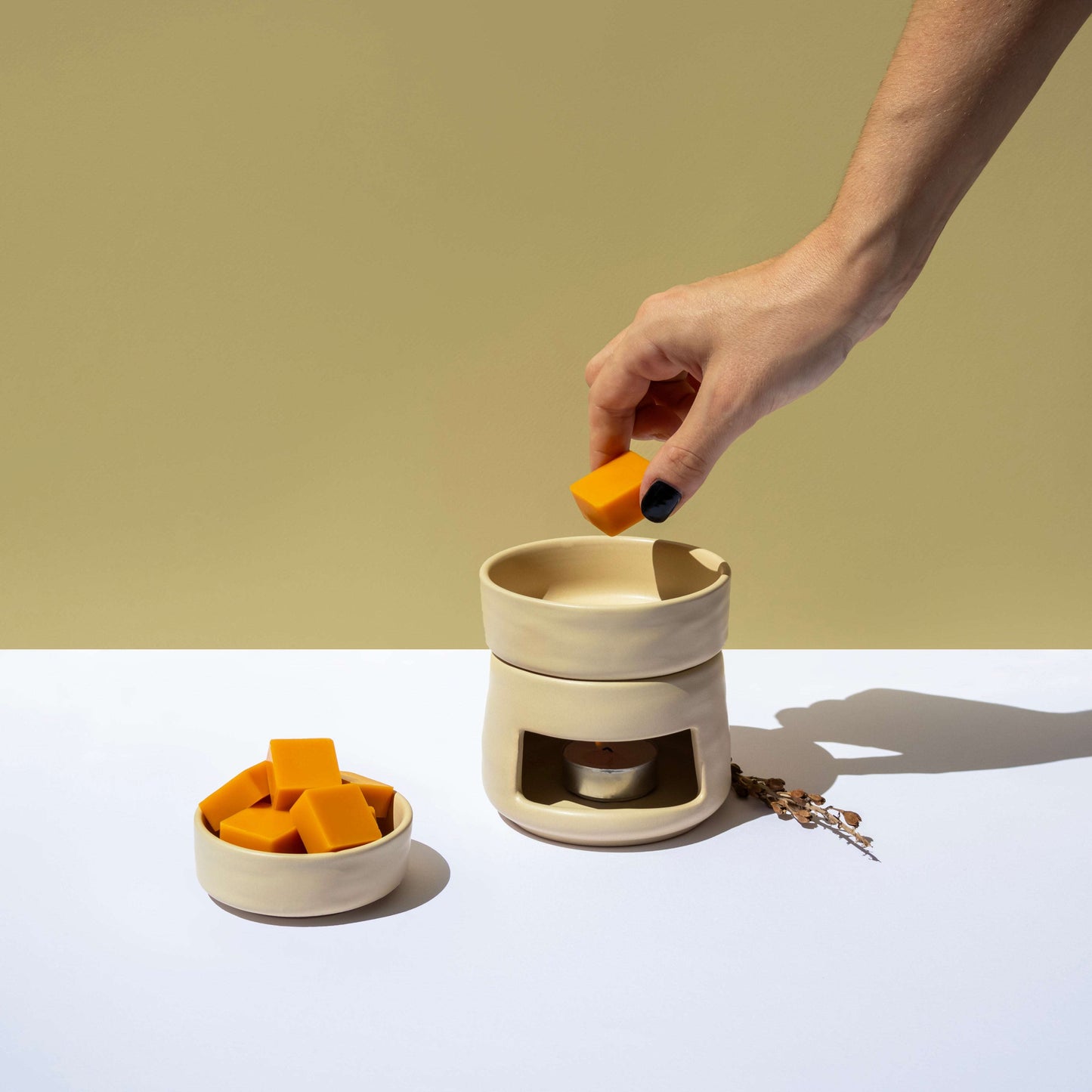Find them at a -15% discount with the purchase of 5 essential oils or more!
Harmony Roll On 10 mL
- 100% Natural Essential Oils in a soothing Vitamin E base oil. Can be applied easily and quickly throughout the day in stressful situations and periods of tension. Roll On Armonia contains lavender, rose and vetiver essential oils which help reduce stress and anxiety.
- Lavender: calms the mind and body, promotes feelings of calm and relaxation
- Rose: helps reduce stress, anxiety and depression
- Vetiver: improves concentration, focus and memory
- Size: 10 mL
Vitamin E Base Oil, Lavender Essential Oil, Rose Essential Oil, Vetiver Essential Oil.
- Use on wrists, temples and/or behind the ears.
- You can also put it on the palms, rub them lightly together to generate heat and inhale through them.
- Also, you can place it in the fridge before use so that the frozen metal ball gives you extra relief!
Keep out of reach of children and keep in a cool and shady place. For external use only. Avoid eye contact.
Allergens: Eugenol, Farnesol, Geraniol, Linalool, d-Limonene, dl-Citronellol
- 100% Natural Essential Oils in a soothing Vitamin E base oil. Can be applied easily and quickly throughout the day in stressful situations and periods of tension. Roll On Armonia contains lavender, rose and vetiver essential oils which help reduce stress and anxiety.
- Lavender: calms the mind and body, promotes feelings of calm and relaxation
- Rose: helps reduce stress, anxiety and depression
- Vetiver: improves concentration, focus and memory
- Size: 10 mL
Vitamin E Base Oil, Lavender Essential Oil, Rose Essential Oil, Vetiver Essential Oil.
- Use on wrists, temples and/or behind the ears.
- You can also put it on the palms, rub them lightly together to generate heat and inhale through them.
- Also, you can place it in the fridge before use so that the frozen metal ball gives you extra relief!
Keep out of reach of children and keep in a cool and shady place. For external use only. Avoid eye contact.
Allergens: Eugenol, Farnesol, Geraniol, Linalool, d-Limonene, dl-Citronellol
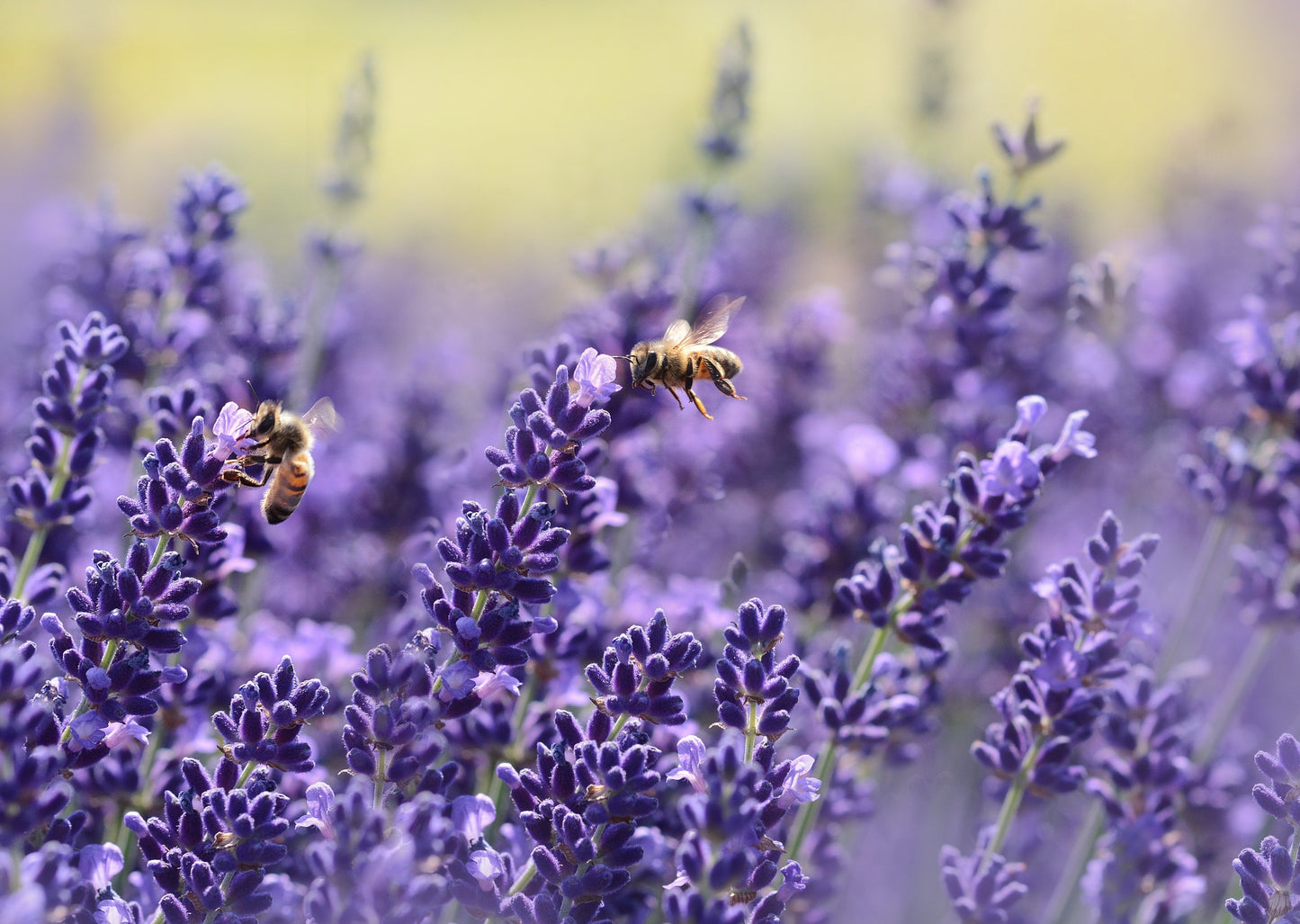
Lavender
At the beginning of the last century, Leclerc recognized the property of lavender to "alleviate sensitivity to pain" and fight fever.
It was cultivated by the ancient Greeks and Romans. The name "lavender" comes from the Latin "lavare" meaning to wash or bathe. It is grown mainly for the essential oil and less for the dried flowers and leaves.
The essential oil has insect repellent and antioxidant properties and is used in the perfume industry, rarities, cosmetics and aromatherapy.
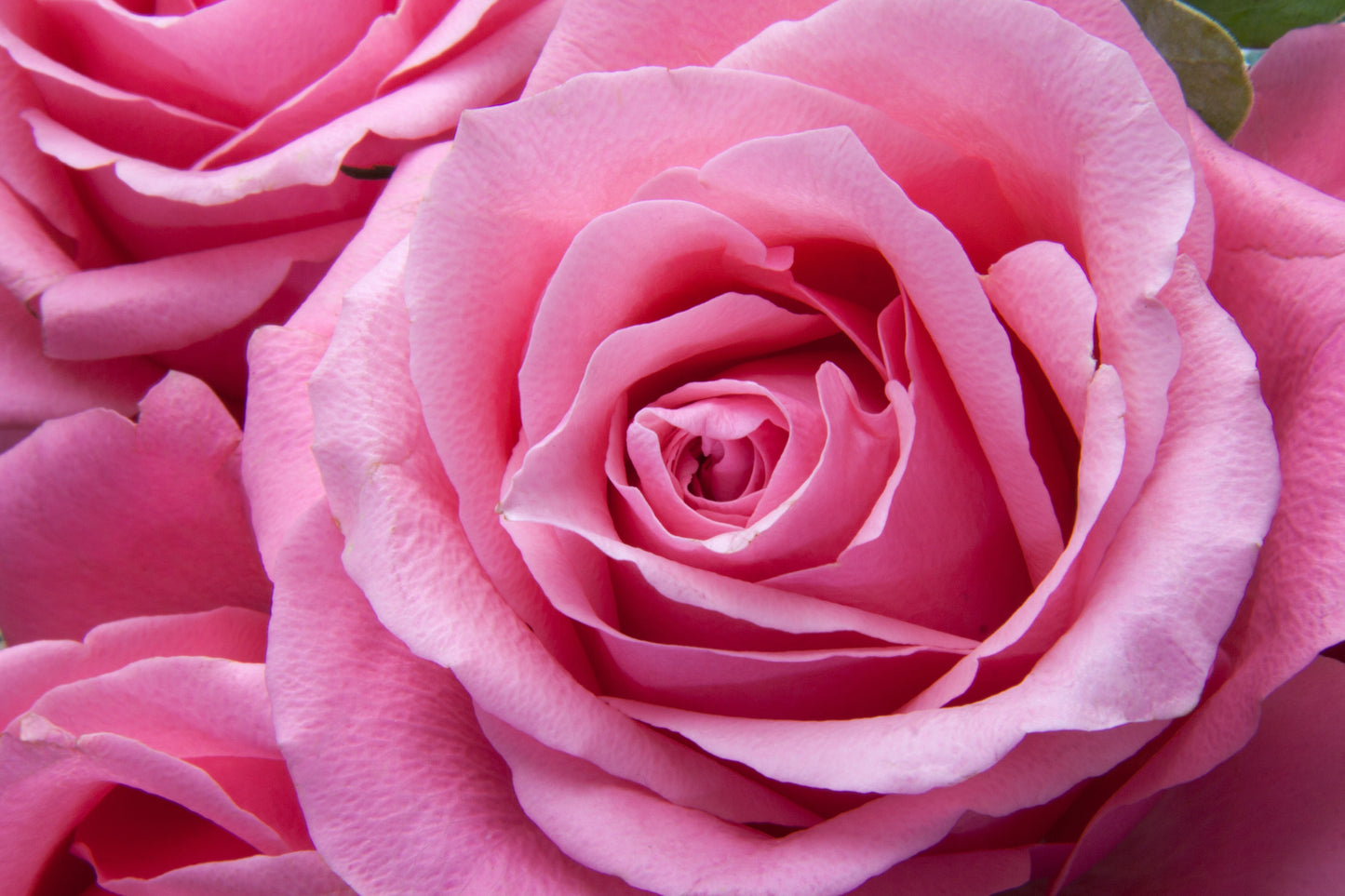
Rose
Rose is one of the plants that is widely known, it is considered the king of flowers and has been known since ancient times.
There are findings that state that it was cultivated from the 21st century BC in ancient Babylon, where they prepared perfumes and aromatic ointments.
Rose's homeland is considered to be Persia (today's Iran). Also in ancient Egypt from the time of the Ptolemies, visitors were blessed with rose petals in official ceremonies and worships.
It is cultivated to obtain rose oil, which is one of the most important and expensive essential oils on the international market.
The most important countries where rosewood is grown for essential oil production are Bulgaria, France, Russia, Morocco, Turkey, Romania, Iran, India, Pakistan and China.
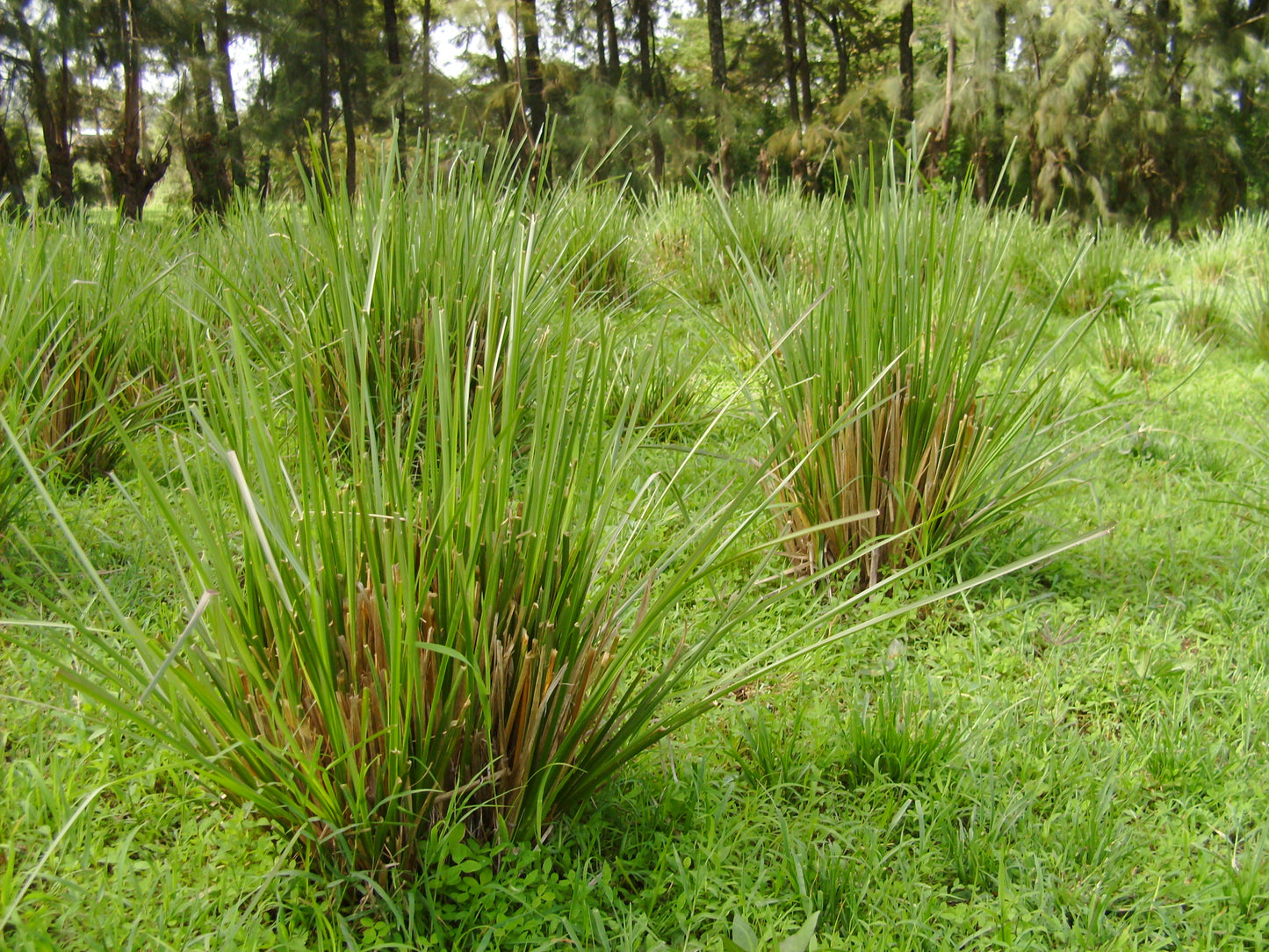
Vetiver
Vetiver derives its name from the Tamil term vettiveru and is called khus khus in many parts of India. On the island of Reunion there is vetiver of the best quality, the so-called bourbon vetiver, but its production is greatly reduced. The roots are extracted in a dry state when the plant is 2 or 3 years old. On Reunion Island, vetiver was used as thatch for roofing.
It is native to India and has been introduced to many tropical countries. It is found in Brazil, China, Guatemala and Madagascar. The main producers of vetiver in the world are Indonesia and Haiti.
It is used extensively in perfumes, cosmetics, deodorants, lotions, soaps and aromatherapy applications. It is a favorite ingredient in many popular perfumes from Chanel, Dior, Givenchy, etc.
